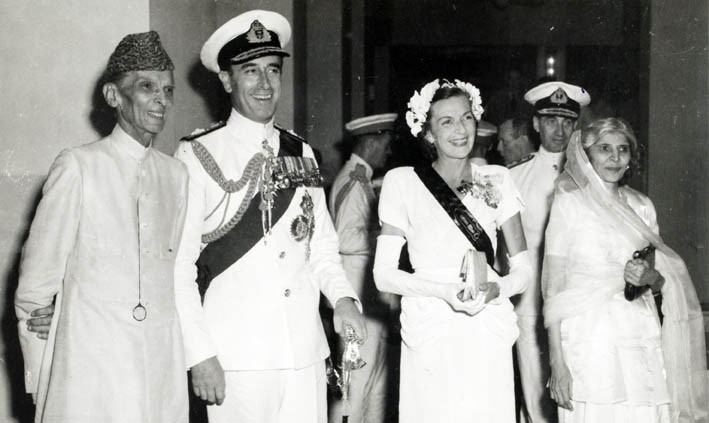
Had the independence and partition of India and Pakistan been better managed, the holocaust which led to the death of nearly a million souls could have been thwarted

The summer of 1947 -- 70 years ago -- was a time of great change in the world. The British Indian Empire, that motley of British Indian provinces and the princely states, was finally coming to an end. The Empire had been the envy of the whole world and had given Britain its pre-eminent status, but now the sun was beginning to set. But the question remained: How will the Empire unravel?
In late March 1947, the new and charming Viceroy and Governor-General of India arrived on the scene -- Lord Mountbatten, the decorated Supreme Allied Commander South East Asia and a cousin of the King-Emperor was appointed by the British government to wrap up the empire. One thing was clear: the British would leave India latest by June 1948. The declaration of the departure date, a demand of Lord Mountbatten before he even accepted the position, put the British in a very precarious situation. It undermined their authority, as people now knew that they were leaving, and it emboldened the hardliner elements in all the communities in India since they could now act with impunity. The expiry date for British rule in itself ensured that this expiry would not be disaster free.
When Louis Mountbatten landed on the shores of India, Pakistan was just an idea. As Faisal Devji has shown, various people differently imagined Pakistan, and Dr Venkat Dhulipala has given critical insight into how this ‘New Medina’ was being thought of in the United Provinces. But now was the moment of decision. Very few people realise the speed with which the partition and independence of India and Pakistan was decided in 1947.
Mountbatten consulted political leaders over April and May 1947 and by the end of May 1947 was decided that not only should the British leave, they should leave early -- by August 15, 1947. This plan, which was announced on June 3rd, after the approval of the British cabinet, only gave a mere 73 days to wrap up the Empire! An empire which took almost a century to build, was to be broken up in two parts, the princely states were to be properly dealt with, and all assets, liabilities, the military, etc, were to be partitioned, in seventy-three days! A middle size firm cannot perhaps be wrapped up in such a short time, but the expectation here was that an empire could be peacefully and properly dissolved during this time. No wonder then that Winston Churchill, the wartime Prime Minister of the United Kingdom, blasted the then Labour government for causing a ‘shameful flight’.
Mountbatten’s reasoning for such a hurried exit was that he thought that India was moving towards communal frenzy and therefore wanted to extricate the British before a communal holocaust befell while the British were still in charge. However, it was this ‘peril of adrenalin’ as Andrew Roberts put it, which in fact led to the summer holocaust in South Asia.
When Mountbatten summoned his governors for a meeting in early April 1947, the governors -- almost all Indian Civil Service officers who had spent over twenty-five years in India -- were of the opinion that the deteriorating law and order situation had not yet gone out of hand and with strict measures it could be controlled. However, Mountbatten overruled them and insisted that a quick exit was the only way possible, thereby stoking the communal fire even more as now groups could attack each other knowing that shortly the British -- who had prided themselves over establishing law and order India -- would be gone forever.
The June 3rd plan too was not what all the major parties wanted: the Congress which had long argued for a united India had finally resigned itself to a divided India, only because such an agreement would ensure independence; the Muslim League -- practically Jinnah himself -- had to agree to the partition of the Bengal and Punjab, both Muslim majority provinces but with significant non-Muslim populations -- an offer which he had rejected when Sir Stafford Cripps had mentioned it a few years earlier; and the Akali’s, who not only did not get a homeland, but were evenly split between India and Pakistan. Such an unsatisfactory plan -- which did not make anyone happy, was again another reason for communal tensions to flare up.
The seventy-three day deadline also meant that both the Congress and the Muslim League had to set up a skeleton government-in-waiting almost immediately. While the well-organised Congress party was ready to take upon such a burden, the Muslim League, which to date had been run primarily by the ‘sole spokesman’ i.e., Jinnah, this task was monumental. Not only was the choice of ministers a difficult task, the selection of civil servants, was an even more complicated one.
While there were adequate numbers of Hindu Indian Civil Service officers, the Muslims barely constituted a hundred men, with very few in top positions. Therefore, the government of Pakistan-in-waiting had to request British officials to continue, which in the circumstances, very few were willing to agree to. Hence, the tasks before the ailing Jinnah were massive, with practically no time.
Thus, in an almost maniac ‘race against time’ Lord Mountbatten liquated the empire without once thinking about its extreme repercussions. Since he had plenipotentiary powers from the British government, the decision was solely his, and therefore, squarely the blame. Had the independence and partition of India and Pakistan been better managed and planned, the holocaust which led to the death of nearly a million souls, and the permanent scaring of millions more, could have been thwarted. Mountbatten’s actions not only charted the destiny of the people of South Asia, his actions became the final destiny for many.